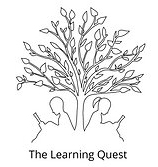
Transforming Education: From Knowledge Display to Lifelong Learning
The emphasis on showcasing children's knowledge can indeed be influenced by a desire for parents to demonstrate their child's achievements as a reflection of their own success as parents. Additionally, societal expectations and the traditional assessment of knowledge contribute to this mindset. Here are some points to consider:
The emphasis on showcasing children's knowledge can indeed be influenced by a desire for parents to demonstrate their child's achievements as a reflection of their own success as parents. Additionally, societal expectations and the traditional assessment of knowledge contribute to this mindset. Here are some points to consider:
-
Validation and Social Comparison:
- Parents may use their child's academic achievements as a form of validation, seeking approval from others and comparing their child's success to that of peers. This can lead to a focus on visible outcomes rather than the learning process.
-
Traditional Assessment Models:
- The traditional education system often relies on standardized testing and grades as measures of success. This system may not adequately capture the full range of a child's abilities, skills, and potential for future success.
-
Fear of Falling Behind:
- Parents may fear that if their child deviates from the prescribed educational roadmap, they will fall behind their peers in terms of academic achievements. This fear can be a driving force in adhering to a fixed curriculum.
-
Fixed Mindset:
- The fixed mindset, as described by psychologist Carol Dweck, involves the belief that intelligence and abilities are fixed traits. This mindset can lead parents to focus on demonstrating existing knowledge rather than fostering a growth mindset that values learning, effort, and resilience.
-
Mismatch with Curiosity:
- Children are naturally curious and learn at their own pace. When subjected to a rigid and predetermined curriculum, there is a risk of stifling their curiosity and limiting their ability to explore topics that genuinely interest them.
-
Lack of Life Learning Skills:
- A rigid curriculum that does not allow for individual pacing and exploration may result in students missing out on developing crucial life learning skills such as critical thinking, problem-solving, and adaptability.
-
Inability to Navigate Change:
- In a world characterized by rapid change, an education system focused solely on specific knowledge may leave students ill-prepared to navigate the uncertainties of the future. The ability to learn how to learn and adapt becomes increasingly important.
-
Stress and Burnout:
- Children forced into a fixed roadmap without consideration for their individual pace and interests may experience stress and burnout. This pressure to conform to predetermined standards can negatively impact their mental health and well-being.
To address these issues, there is a growing movement towards more flexible and learner-centric educational approaches, such as personalized learning, project-based learning, and competency-based education. These models aim to accommodate individual differences, foster a love for learning, and equip students with the skills needed for a rapidly changing world. Advocating for a shift in educational paradigms that values the process of learning over rigid outcomes can contribute to a more holistic and adaptable approach to education.
SITEMAP
SUPPORT US


